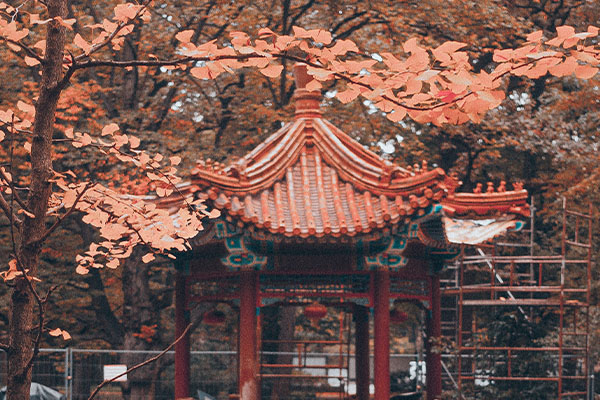My favourite writer F. Scott Fitzgerald once said: “That is part of the beauty of all literature. You discover that your longings are universal longings, that you’re not lonely and isolated from anyone. You belong.” Good literature is generous. It never keeps to itself. You do not need to have a certain experience or be in a certain group to understand it. Anyone can somehow echo with it if it is good literature. You might be touched by a character. Or some of the narrative events make you think. It doesn’t matter. What matters is the book discusses universal questions that everyone can take part in.
The Vegetarian by the South Korean writer Han Kang is such a book. Even though the book is based in the contemporary South Korean society, the story still asks universal questions about humanity. The story begins with Yeong-hye’s nightmare which makes her decide to become vegetarian. However, the decision leads to a self-destruction journey, lust and obsession as well as the family collapse. During the destruction process, the presentation of the violence in meat-eating, sex, even family care triggers readers to think about culture, gender, innocence in life, violence and beauty and many more. Therefore, although The Vegetarian is a story about a woman in South Korean trying to be vegetarian, readers from different backgrounds can still echo with the universal primary discuss of human being’s nature.
The story starts by raising the simple daily choice in terms of food and expands to the discussion of an array of characteristics of human nature. From vegetarian to feminism, and then to the human nature itself, the book provides readers with different needs something to think of. As we all see, the surface discussion that readers can easily get is vegetarian itself. As we all know, vegetarian is now a trend in western countries. While more people adapt to the habit of being vegetarian or even vegan, the dispute of vegetarian never stops. This book, which depicts the horrible experience as a vegetarian, somehow post subtle stress on the question of vegetarian, especially for westerners. It makes people rethink the meaning of being vegetarian, as the vegetarian is transformed from a modus and Buddhism practice to a popular western lifestyle.
However, if we look further into the story, we see the discussion of feminism in a patriarchal society. This topic is somehow echoes more with Asian female readers. Women in patriarchal society is favoured by many Asian women writers, such as Amy Tan’s Joy Luck Club and Jung Chang’s Wild Swans. Women in these works all have a similar trait: suppressed by the men in the family.
In The Vegetarian, Yeong-hye is just “a wife” to her husband. As at the beginning of the story, Yeong-hye’s husband, Mr. Cheong, said: “I sometimes told myself that, even though the woman I was living with was a little odd, nothing particularly bad would come of it. I thought I could get by perfectly well just thinking of her as a stranger, or no, as a sister, or even a maid, someone who puts food on the table and keeps the house in good order.” However, being a vegetarian is a sign of rebellion of Yeong-hye trying to establish her own identity in the Korean patriarchal society, as eating meat is inevitable in Korean culture. However, what she experienced after refusing to eat meat is the scold and violence from both her husband and her father. This may remind many women in Asia about their own experience in the family and in society. For them, being a women means a “good wife”, a “good mother”, a “good daughter”, and nothing more. If you can’t achieve those expectation, you’ll be labelled as bad or even mad.
Finally, what the book is trying to present is a universal question of the nature of human beings, which is related to every reader. During an email interview with the Literary Hub, Han Kang said: “If I could say one thing, this novel isn’t a singular indictment of the Korean patriarchy. I wanted to deal with my long-lasting questions about the possibility and impossibility of innocence in this world, which is mingled with such violence and beauty. These were universal questions that occupied me as I wrote it.”
Therefore, from the story, we can see the violence of family, of sex, but we can also see the family caring by Yeong-hye’s sister In-hye or the obsession of the bodily beauty by Yeong-hye’s brother-in-law. Especially in the send part of the book, which is about the sex affair of Yeong-hye’s brother-in-law who is an artist. On the one hand, we see the violence of sex as well as the impossibility of innocence in the world. On the other hand, we also see the obsession of beauty by the artist, who pursuits it without any moral restraint. Our real life might not be as fiercely dark as in the novel, but we can still get some thinking about our own human nature from the book.
Even though the whole book tries to avoid cultural boundaries to offer a universal discussion of humanity, it is still inevitable that people in Asian culture probably will understand the contents more thoroughly. The review by The Evening Standard tried to rationalize the strangeness of the story by attributing to its culture. There’s nothing wrong with that. However, just as I said above, different readers will have a different understanding of the book. The most important thing is it triggers people to think. The Vegetarian did it, therefore, it is no doubt good literature.








Leave A Comment